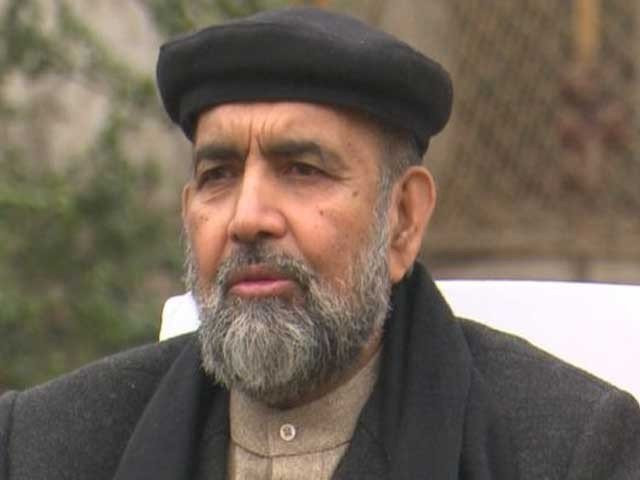Despite amendments, NAB law draws CII’s ire
Council terms three sections of graft buster’s ordinance ‘un-Islamic’

Qibla Ayaz. PHOTO: EXPRESS
“Sections 14-D, 15-A and 26 of the NAO are not in accordance with the Shariah law,” Chairman Dr Qibla Ayaz said while addressing a news conference after the conclusion of a two-day moot of the council here on Thursday.
The response comes following President Dr Arif Alvi’s promulgation of the National Accountability (Amendment) Ordinance, 2019 towards the end of December to limit the sweeping powers of the national accountability watchdog to act against any individual accused of financial corruption at will.
Section 14 of the law pertains to presumption against accused accepting illegal gratification, Section 15 relates to disqualification to contest elections (or to hold public office) and Section 26 refers to the tender of pardon.
“Provisions like becoming an approver and striking plea bargains in the corruption cases are against the Shariah law,” Dr Ayaz said. “Disgracing the accused through handcuffing and letting their videos go on air is not allowed in Islam.”
He said with the recent amendments, the NAB law would become further discriminatory.
“NAB law is not compatible with Islamic laws on crime and punishment,” said Dr Ayaz, adding that the council would review the amendments to the law.
He added that under the 1973 Constitution, no law could be enacted against the spirit of Shariah law.
Under the amended ordinance, the NAB chairman would submit a report on complaints against the bureau to the federal government. Earlier, the NAB chief used to submit such a report to the president.
It says inquiries and investigations shall stand transferred to the respective authorities or departments which administer the relevant laws of taxation, levies or imposts in question.
Trials shall stand transferred from the relevant accountability courts to the criminal courts which deal with offences under the respective laws pertaining to taxation, levies, or imposts in question.
With regard to procedural lapses in any government project or scheme, it says no action under the ordinance shall be taken against any holder of public office unless it is shown that the holder of public office has materially benefitted by gaining any asset or monetary benefit which is disproportionate to his known sources of income, or where such material benefit cannot be reasonably accounted for, and there is evidence to corroborate the acquiring of such material benefit.
Importantly, it reads, no action under the ordinance shall be taken against any holder of public office in any matter pertaining to the rendition of any advice, opinion or report, unless it is shown that the holder of public office has materially benefitted by gaining any asset or monetary benefit which is disproportionate to his known sources of income, or where such material benefit cannot be reasonably accounted for.
Surprisingly, the ordinance states that the valuation of immovable properties, for the purposes of assessing as to whether a holder of public office has assets disproportionate to his known sources of income, shall be reckoned either according to the applicable rate prescribed by the district collector or the Federal Board of Revenue (FBR), whichever is higher. “No evidence contrary to the latter shall be admissible,” it adds.
It also states that an act done in good faith and in discharge of duties and performance of official function shall not, unless there is corroborative evidence of accumulation of any monetary benefit or asset which is disproportionate to the know sources of income or which can’t be reasonably accounted for.
The ordinance makes it mandatory for NAB to obtain approval of a scrutiny committee, comprising NAB chairman, cabinet secretary, SECP chairman, FBR chief, and a law ministry representative, before acting against any government official.
It further states that NAB would not seize property of government officials without the orders of the court. If the national graft buster cannot complete an investigation against a suspect within three months, the accused would be entitled to bail, it added.
The proposed amendment text suggested that NAB should now only be able to proceed in corruption cases worth Rs500 million or more. Earlier, the minimum limit was Rs50 million.
The NAB jurisdiction over matters relating to tax, stock exchange and IPOs has been curtailed. The FBR, SECP and building control authorities would be the sole authorities mandated to act on all such matters.
Under the ordinance, NAB officials have been barred from giving statements to the media on an inquiry or investigation before the filing of formal reference.



















COMMENTS
Comments are moderated and generally will be posted if they are on-topic and not abusive.
For more information, please see our Comments FAQ